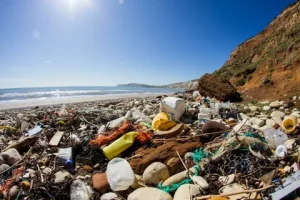Urbanization, defined as the increasing population shift from rural areas to cities, is a global phenomenon that has transformed human societies and the environment over the past few centuries. While Impact of Urbanization brings economic growth, improved infrastructure, and enhanced living standards, it also poses significant challenges to the environment. This article explores the multifaceted impact of urbanization on the environment, focusing on key areas such as land use, water resources, air quality, and biodiversity.
Land Use and Habitat Destruction

One of the most immediate impacts of urbanization is the alteration of land use. As cities expand, natural landscapes are converted into urban areas, leading to habitat destruction and fragmentation. Forests, wetlands, and agricultural lands are often cleared to make way for residential, commercial, and industrial development. This not only reduces the available habitat for wildlife but also disrupts ecological processes.
Urban sprawl, a common feature of modern cities, exacerbates these issues. Low-density development spreads over large areas, consuming more land and resources than compact urban growth. This sprawl leads to the loss of green spaces, which are crucial for maintaining ecological balance and providing recreational areas for urban residents.
Water Resources and Pollution
Impact of Urbanization significantly impacts water resources through increased consumption and pollution. Cities require vast amounts of water for domestic, industrial, and recreational purposes. This demand often leads to the over-extraction of water from rivers, lakes, and aquifers, depleting these vital resources and affecting the ecosystems that depend on them.
Moreover, urban areas generate substantial amounts of wastewater and stormwater runoff. Without proper management, these can lead to water pollution, contaminating rivers, lakes, and oceans with harmful substances such as heavy metals, nutrients, and pathogens. Urban runoff, often laden with pollutants from roads, buildings, and industrial sites, can cause eutrophication in water bodies, leading to algal blooms and dead zones that severely affect aquatic life.
Air Quality and Climate Change
The concentration of human activities in urban areas leads to increased emissions of air pollutants and greenhouse gases. Vehicles, industries, and residential heating systems release large quantities of pollutants such as carbon monoxide, sulfur dioxide, nitrogen oxides, and particulate matter. These pollutants degrade air quality, posing significant health risks to urban residents, including respiratory and cardiovascular diseases.
Impact of Urbanization also contributes to climate change. Cities are major sources of carbon dioxide and other greenhouse gases due to the burning of fossil fuels for energy, transportation, and industrial activities. The urban heat island effect, where urban areas experience higher temperatures than their rural surroundings, further exacerbates the impact of climate change. This effect is caused by the extensive use of concrete and asphalt, which absorb and retain heat, and the lack of vegetation, which provides cooling through evapotranspiration.
Biodiversity Loss
Urbanization leads to significant biodiversity loss as natural habitats are destroyed or fragmented. Many species are unable to adapt to the rapid changes in their environment, leading to declines in population and, in some cases, extinction. Urban areas often favor generalist species that can thrive in human-altered environments, while specialist species that require specific habitats and conditions are at a disadvantage.
The introduction of invasive species is another consequence of Impact of Urbanization. Cities often serve as entry points for non-native species, which can outcompete and displace native flora and fauna. This further reduces biodiversity and alters ecosystem dynamics.
Waste Management Challenges

The rapid growth of urban populations generates large quantities of solid waste. Effective waste management becomes a critical challenge for city authorities. Inadequate waste disposal and recycling systems can lead to the accumulation of waste in landfills, illegal dumping, and pollution of soil and water bodies. Moreover, the decomposition of organic waste in landfills produces methane, a potent greenhouse gas that contributes to climate change.
Mitigating the Environmental Impact of Urbanization
While Impact of Urbanization poses significant environmental challenges, there are strategies that can mitigate its impact. Sustainable urban planning and development practices are essential. These include promoting higher-density developments to reduce urban sprawl, protecting green spaces, and integrating natural landscapes into urban areas.
Green infrastructure, such as green roofs, urban forests, and permeable pavements, can help manage stormwater, reduce the urban heat island effect, and enhance biodiversity. Public transportation systems and non-motorized transport options, like cycling and walking, can reduce air pollution and greenhouse gas emissions.
Effective waste management practices, including recycling, composting, and waste-to-energy technologies, can minimize the environmental impact of urban waste. Additionally, policies that promote energy efficiency and the use of renewable energy sources can significantly reduce the carbon footprint of cities.
Conclusion
Urbanization is an inevitable aspect of modern development, bringing both opportunities and challenges. Its impact on the environment is profound, affecting land use, water resources, air quality, and biodiversity. However, with thoughtful planning and sustainable practices, it is possible to mitigate these impacts and create urban environments that are both livable and environmentally friendly. As the global population continues to urbanize, the importance of addressing these environmental challenges becomes ever more critical for the health of our planet and future generations.




